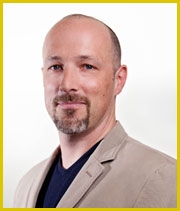Many companies, which are adopting the millennial mindsets, are opting for open offices and a flattening structure.
Millennials can be truly unpredictable. Jamie Notter, partner, Culture That Works, who was the keynote speaker at the SHRMTech’15, in Mumbai, talked of an incident, which freaked out a recruiter. The candidate had landed up for a job interview along with his mother! Notter said that he was not debating whether this was the correct or the wrong way of doing things, but the fact remains that millennials do behave in such a manner and there are several reasons for that.
It is important for organisations to embrace the millennial mindset, not because they are better but because they are here to stay and they will continue to be part of the workforce in increasing numbers. The maximum age of the millennials being 33 years, it means that they have been around for the last 10 years now.
The millennials have had a different upbringing in comparison to the previous generations. First, they have grown in a technological, Internet-savvy and social networking environment. Even their relationships with their folks have changed. In the United States, the millennial generation has grown up to be treated by their parents as peers and they are consulted in several decision-making processes. In such a scenario, it is more likely for the millennial generation to expect to be treated in the same manner even at the workplace. They want a similar level of importance at their offices. The same holds true for India as well.
Many companies which are adopting the millennial mindset are opting for open offices and a flattening structure.
He cited the example of a company that did not believe in weekly reports and meetings. For every project they would put up the role of each team member on a notice board to be updated by the individual members. This ensured that every member was aware of the real-time progress of the work and the contribution of each individual player.
He said, “Successful companies are shifting to embracing the four key capacities that will drive the future of business: digital, clear, fluid, and fast. Companies which cling to outdated, conventional models continue to struggle to stay relevant to customers, capitalise on opportunities in the marketplace, and attract top talent.”
“HR needs to be in the middle of the road for this change,” he added.
Notter commented that he has often heard HR professionals complaining that they are not consulted for strategic decisions in the company and that they should be offered a seat on the table. He said, “Why do you need to be offered? Just go and grab it. Next time, whenever there is a meeting, just get inside and offer your solution. No one is going to throw you out. You are also part of the company.”
“HR people need to convince that they can add value to the conversation and nothing stops after that,” he adds.
He said that it is important to think like a startup which has no set pattern to follow and is always ready to experiment because nobody knows what is going to work and what is not. He advocated that even HR professionals should act in a similar fashion.
Value our content... contribute towards our growth. Even a small contribution a month would be of great help for us.
Since eight years, we have been serving the industry through daily news and stories. Our content is free for all and we plan to keep it that way.
Support HRKatha. Pay Here (All it takes is a minute)




































